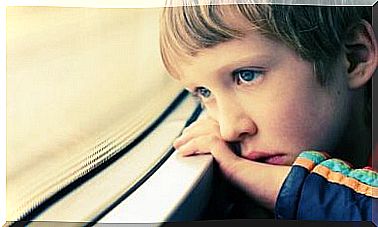FOMO Syndrome In Adolescents – Being Parents

The FOMO syndrome gets its name from the English expression Fear Of Missing Out, which means “fear of missing something.” It is a condition that can present itself in some people of any age.
Nevertheless, it currently affects many adolescents and children. It is the fear of not participating in their group’s social activities.
The physical and relational changes experienced by children of this age make their insecurity more evident. This whole process then becomes more complex if we take into account the fact that we live in an information society.
A person’s popularity and acceptance is measured by the number of followers they have on the internet.
How Does FOMO Syndrome Affect Adolescents?
The main consequence of this syndrome is that young people feel they have an inferior social status. Indeed, they experience anxiety, stress as well as a feeling of inferiority which can be difficult to control, or even to detect.
Other effects of FOMO syndrome
- Compulsive desire to interact through social networks. And to publish photos of each place and activity. Likewise, there is an inordinate interest in seeing how others react to posts. More hours are spent online than interacting in real life.
- In severe cases of the syndrome, one can reach extreme dissatisfaction which leads to physical and mental health problems. Mood swings, feelings of loneliness and low self-esteem begin to manifest. The mixture of all these factors easily turns into a depression that is difficult to treat.

- The perception of reality is distorted by being always connected to a digital screen. Viewing a profile on a social network is like watching a preview of a movie in which only the attention-grabbing scenes are shown. As a result, young people end up idealizing people and situations which, for them, are worthy of admiration.
- Another dangerous aspect that this syndrome can trigger is loss of privacy. A teenager’s stubbornness in having admirers, “likes” and responses from his contacts can put him in danger. It is common for young people not to use the security options to be more visible on social networks.
Changes in the perception of self-image, jealousy among peers, judgments towards others, reduced concentration and the tendency to overtake others are also behaviors that result from this disorder.
“FOMO ( fear of missing out ) is the fear of missing things. It is a phobia created by the virtual world. That of not participating in pleasant experiences for other people ”
-Doctor José Alejandro Medina-
Tips for dealing with FOMO syndrome
If your teenager is going through this syndrome, you can help them by showing them other perspectives on the situation. This action is known as questioning. Indeed, its function is to modify negative thought patterns. We also recommend:
- Watch for negative actions. A good way to do this is to write down negative feelings in a journal so you know how often they occur. In this way, situations that trigger anxiety can be identified and harmful behaviors can be changed.

- Control the use of technologies. Providing a hobby and nurturing a talent is vital to fostering real interaction between children and adolescents. One of the main causes of FOMO syndrome is the unfiltered information that young people receive on social media. It’s okay to be active on the internet, as long as you have other hobbies that bring us back to reality.
- Practice mindfulness techniques . These exercises help people focus on what they are doing. When the state of mental fullness is reached, the brain focuses on each activity. There is no time to welcome stress and anxiety.
- Help them become aware of the separation between real life and the world of social media. Young people should know that photos of trips and parties with their favorite celebrities do not reflect an ideal life. Like any human being, they spend many nights in bed watching a series or at family celebrations.
Being a teenager is difficult in today’s society, in which every experience is digitized and published. It is very important to support children in the development of their character and in tolerance to frustration.
With the proper foundations, the damage will be minor and you will help build a healthy and socially comfortable adult.









